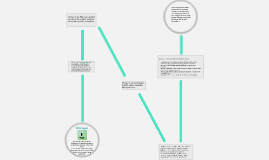af
Transcript: Smith-Lever Act, Smith-Hughes Act Income Tax Panama tolls dispute Zimmerman note Sussex Pledge Underwood-Simmons Tariff The Sussex pledge was a promise made in 1916 during World War I by Germany to the United States dealing with passenger and merchant ships. Territories! Triple Alliance; Central Powers Germany Austria Hungary Labor Victories =) October 13, 1913 - Lowered tariffs on hundreds of items that could be produced more cheaply in the U.S. than abroad. 1917 - Puerto Rico LaFollette Seaman's Act Wilson's idea that he wanted included in the WWI peace treaty, including freedom of the seas and the League of Nations. Jed Garcia Federal Reserve Act Dispute over canal toll charge between the U.S. and Panama Federal Trade Commission, Cease and Desist Orders May 7, 1915 - Lusitania sunk by a German u-boat, killing 159 American passengers Regulated banking to help small banks stay in business. A move away from laissez-faire policies, it was passed by Wilson. Promised Philippine independence. Given freedom in 1917, their economy grew as a satellite of the U.S 1916 - Philippines Food Administration Wilson pushed passage of this act which mandated an eight hour workday and time and a half for overtime 1917-Established the U.S.'s first Food Administration with the authority to fix food prices, license distributors, coordinate purchases, oversee exports, act against hoarding and profiteering, and encourage farmers to grow more crops. Clayton Antitrust Act Extended the Sherman Antitrust Act of 1890 to give it more power against trusts and big business. It outlawed practices that had a dangerous likelihood of creating a monopoly, even if no unlawful agreement was involved. Virgin Islands Jones Act 1917 - U.S. bought them from Denmark and built a naval base to protect the Panama Canal and to prevent Germany's seizure of islands during WWI. Passed by Wilson, it provided federal money to build roads. It helped to provide competition to the railroads' monopoly on public transportation Espionage Act, 1917; Sedition Act, 1918 Puerto Ricans won U.S. citizenship and the right to elect their own upper house. The first step toward building government revenues and redistributing wealth, a tax that was levied on annual income over a specific amount and with certain legally permitted deductions. WWI Afterwards... British France Russia LaFollette was a major leader of the Progressive movement from Wisconsin. He protested the cruel treatment that sailors received and led the fight for this act. 1917 - Germany sent this to Mexico instructing an ambassador to convince Mexico to go to war with the U.S. A militant, radical union that favored socialism and opposed free enterprise. They were disliked by big business and less radical unions. Triple Entente; Allies The most powerful agency of the war, it had to satisfy the allied needs for goods and direct American industries in what to produce. Fourteen Points International Workers of the World Herbert Hoover led the Food Administration and started many programs to streamline food production and distribution. Labor Victories, Territories, World War I Brought forth under the Wilson administration, they stated that any treacherous act or draft dodging was forbidden, outlawed disgracing the government, the Constitution, or military uniforms, and forbade aiding the enemy. Adamson Act, 1916 A government agency established in 1914 to prevent unfair business practices and help maintain a competitive economy. Served as Secretary of State under Wilson from 1913-1915, he resigned in protest of U.S. involvement in WW I. Secretary of State William Jennings Bryan War Industries Board Precursor to American entrance into WWI WWI Sides Period 5 Negotiated by U.S. using arbitration, the mediation of a dispute, Taft promoted these agreements as an alternative to war in Latin America and Asia. Federal Highways Act, 1916 Arbitration Treaties Lusitania THANK YOU!! =D

















